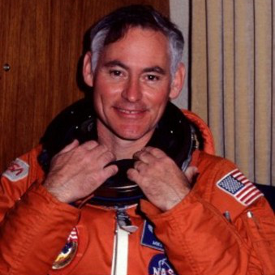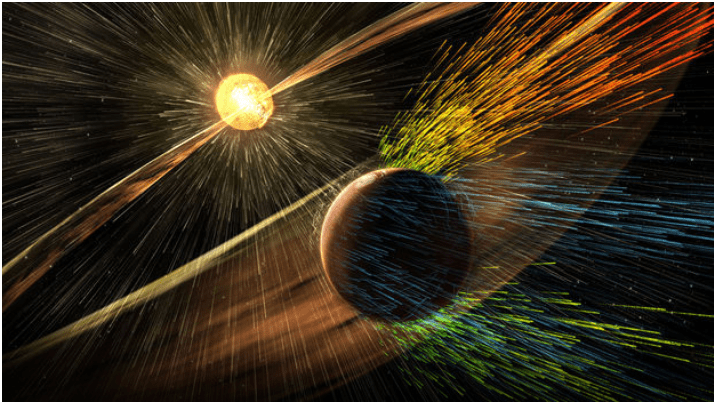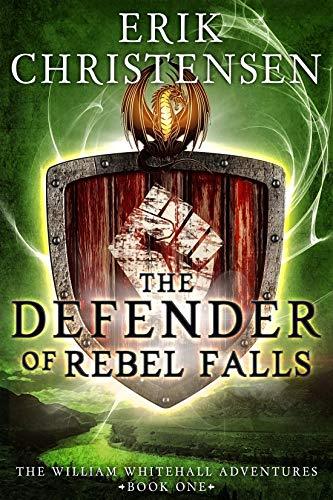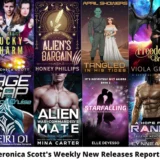This post first appeared on the Roswell Daily Record…
For this month’s post, I felt I really needed to talk about the subject that’s top of the mind in my household, which is the rapidly spreading COVID-19 virus and how reading or watching stories of similar, but fictional situations can be helpful if you’re of a sci-fi mindset.
Kathryn VanArendonk, senior writer at Vulture and New York Magazine (vulture.com) published a good article on this topic recently and gave me permission to republish the story in the Roswell Daily Record’s Vision pages. Here’s what she had to say about why these types of stories are especially appealing at a time like this. “Pandemic fiction is usually a story of helplessness. The virus is spreading, it’s invisible, and all the usual safeguards have failed. Even when a deadly virus isn’t sweeping the globe, safeguards are never perfect. But in pandemic stories the threat becomes more immediate, universal and horrible. Viruses are not supervillains with origin stories to explain their villainy, and they’re not serial killers with fetishes. There’s no theory of mind to wrestle with. So pandemic fiction is about how people behave in response to acute, sudden-onset helplessness. When we’re confronted with that helplessness in real life, watching some version of it — any version of it, and ideally one where at least some people survive — is comforting. It’s a model for how we could respond.”
She and others have spent a lot of time discussing the 2011 movie “Contagion”, which was heavily researched and which does depict a virus emanating from China and causing a worldwide pandemic. It’s one of my personal favorites as well because the movie does such a good job of laying out the entire life cycle of the crisis, with some pretty realistic timelines and (spoiler) things starting to look up for the main characters by the end. Watching it years ago also taught me about the R0 or R-naught factor of how many people on average each sufferer can infect as well as the huge importance of not touching my face. Easier said than done! But the world does get through it and the vaccine eventually becomes available, which again is our real world hope, for some time in late 2021.
There are other movies, both with zombies and without, which also deal with these issues. Depending on your tastes, you may prefer “World War Z,” with its fast moving zombies, or “Last Train to Busan”. If you prefer less sci-fi in your plot, 1995’s “Outbreak”, which takes a pretty cinematic approach to a novel ebola virus making it into the world, until Dustin Hoffman and company find a cure.
A personal favorite of mine because of the dogged medical detectives, which sadly is unavailable currently, is a 1992 made-for-TV movie, “Black Death”, starring Kate Jackson as the heroic doctor who must save New York City from an outbreak of the pneumonic plague. It’s very well done and depicts the hard work done by the epidemiologists trying to track down contacts and paths of infection, much as the real experts are currently doing all over the world right now for COVID-19.
“Panic in the Streets” is a tense 1950 film noir starring Richard Widmark as a Public Health Officer working against time to stop the pneumonic plague.
“The Walking Dead” TV show started off with the pandemic, although it’s become much more focused on other aspects of the zombie apocalypse after the first season ended. They did, however, end up at the CDC in season one. I guess it’s not a spoiler by now to say the characters didn’t find the cure they were hoping for at the CDC.
An excellent and timely nonfiction program to watch is “Pandemic,” an eye opening series about doctors and scientists all over the world working hard to track and fight viral disease outbreaks. It was released just prior to the rise of COVID-19 so it’s eerie listening to these experts talk about “the next one.” I found it heartening, however, to know how many people work so hard behind scenes in many countries, trying to keep us all safe. All the science being done is the absolute key to success. On the more depressing side, I was pretty horrified at the working conditions faced by medical professionals in less economically developed countries. This is only available on Netflix currently.
My interest in medical issues of this type arose at an early age, listening to my father talk about nearly dying of cholera when he was a child. According to him, he was the only person in the entire state of New York that year to have the disease and eventually the epidemiologists tracked the source. Hearing my father talk about this incident inspired me to read books on epidemiology, with fascinating stories of doctors locating Patient Zero, or the first person to come down with the disease in question, and trying to figure out where that person acquired the illness, among other things.
I naturally devoured science fiction with medical storylines, such as the excellent “Sector General“ Series by James White, set on a gigantic interstellar space station which serves as a hospital. There was also Murray Leinster’s “Med Ship” series, about a roving space-going doctor. And of course Andre Norton’s “Plague Ship, Solar Queen,” book 2, about an outbreak on a free trader spaceship.
The “Andromeda Strain” by Michael Crichton, both as a novel and a movie, was well done and exciting, with that touch of science fiction to add an edge to the medical mystery.
Stephen King’s “The Stand” also begins with a terrifying outbreak.
The “Apokalypsis” series by Kate Morris is one of my favorites currently and includes a nice level of romance threaded through the dire events. The series stands at three books — the second one is my favorite and I’ve reread it numerous times — and we readers are waiting for the promised fourth book. Morris is very good at depicting the early stages of a pandemic and the subtle signs the characters ignore or are puzzled by. We readers of course know what’s coming but there are still some surprises. She does include not-quite zombies, not-quite human any more creatures.
I always wanted to write a plague or pandemic story myself because the subject fascinates me. And perhaps I have leftover anxiety from hearing the story repeated as a child how my dad nearly didn’t make it out of his childhood! There’s that whole aspect of what would I or the reader do if we were caught in the situation. Would we figure out what was happening soon enough? Could we save ourselves and our loved ones? I guess we’re finding out now in an all too real way as COVID-19 spreads across the globe. Writing about such a situation is even more cathartic for an author than reading what others have written.
At the same time, I also wanted to write more novels about interstellar cruise liners. I created a wonderful starship for Wreck of the Nebula Dream and then of course had to destroy her, but as time went on, I kept thinking of intriguing stories I could tell on a cruise ship sailing the stars. I had the idea of using the ship as my “village,” with a recurring cast of characters. The two ideas came together, in 2016’s Star Cruise: Outbreak, partially inspired by a run of news stories at the time about noroviruses on ocean-going cruise ships. I pondered what would happen if a seemingly benign-but-unpleasant bug hit an interstellar cruise ship and was really the start of a much more serious outbreak, harbinger of something never seen before.
After a lot of research into various earthly diseases, I came up with an alien ailment that combines deadly aspects of several real viruses and conditions. I decided my main characters would be Emily the ship’s new doctor and Jake, the head of security. Both are military veterans and suffering from varying degrees of PTSD, so that’s an added complication for them to work through on their way to romance, as they handle the outbreak. I write romances so of course there’s a happy ending.
But as reassuring as fiction can be, we all live in the real world and must protect ourselves and our loved ones and everyone else as best we can. I strongly recommend bookmarking the Center for Disease Control’s website at https://www.cdc.gov/.
Sending my best wishes to you and yours to stay safe in the current pandemic situation.
USA Today Best Selling Author
Veronica Scott grew up in a house with a library as its heart. Dad loved science fiction, Mom loved ancient history and Veronica thought there needed to be more romance in everything. When she ran out of books to read, she started writing her own stories.
Seven time winner of the SFR Galaxy Award, as well as a National Excellence in Romance Fiction Award, Veronica is also the proud recipient of a NASA Exceptional Service Medal relating to her former day job, not her romances!
She read the part of Star Trek Crew Member in the official audiobook production of Harlan Ellison’s “The City On the Edge of Forever.”










Recent Comments